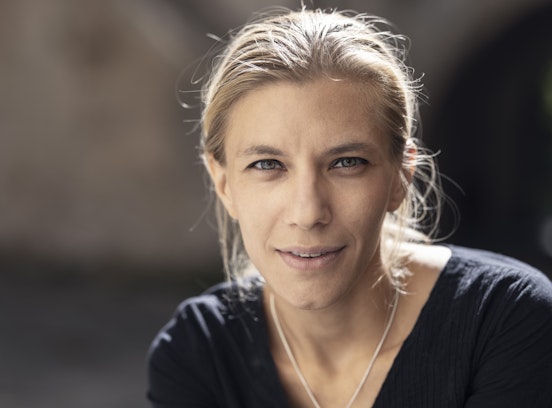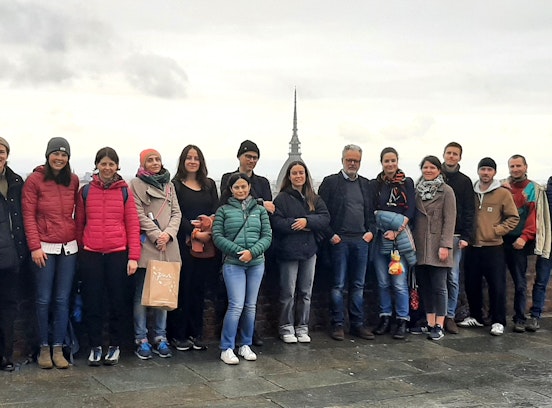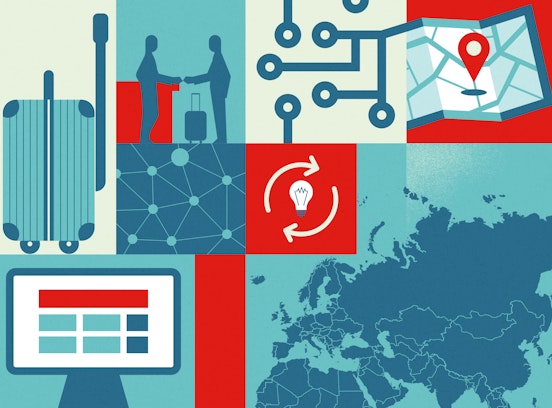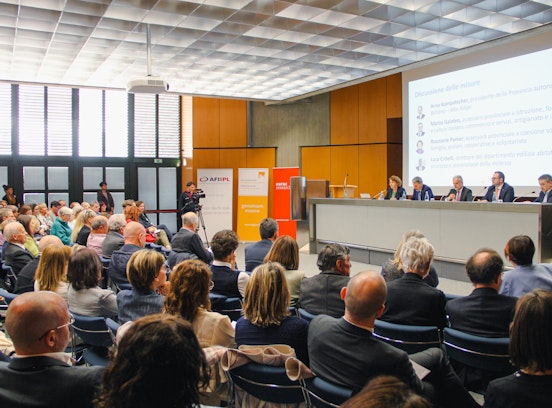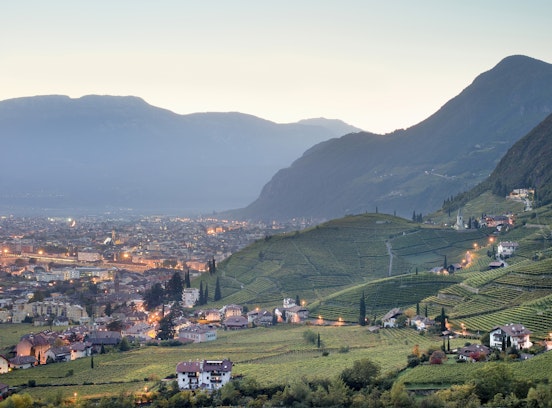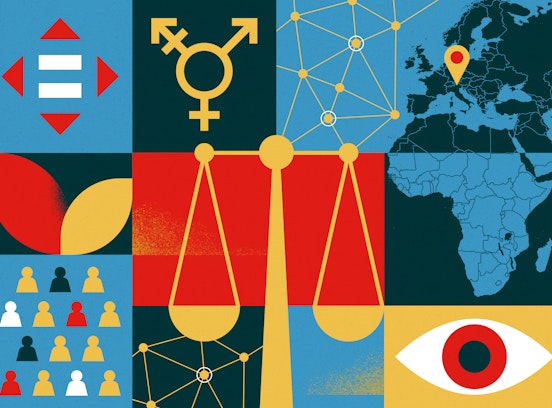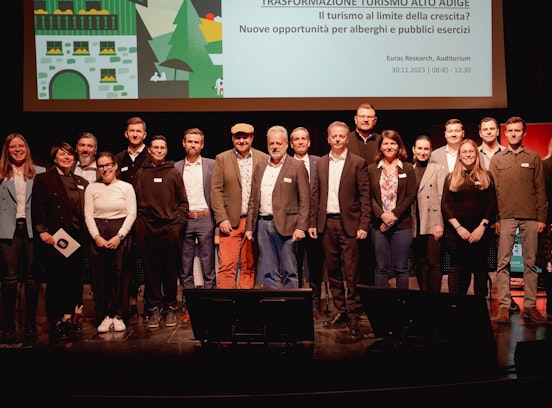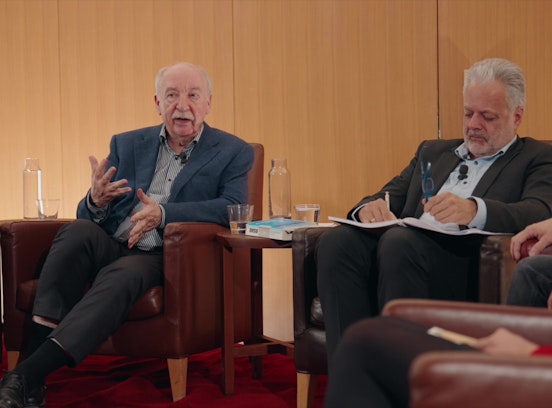Center for Advanced Studies - News & Events - Responsible and sustainable travel
Responsible and sustainable travel
Online expert conference of the HGJ and the Center for Advanced Studies of Eurac Research - Study on the Future of Travel and Keynote by Harry Gatterer
- Deutsch
- English
- Italiano
How will the future of tourism look like and what are the expectations and needs of the guests of the future? These and other questions were the focus of the online symposium "Tourism is undergoing radical change. Perspectives for the time after Corona", which was organised by the Hoteliers- und Gastwirtejugend (HGJ) and the Center for Advanced Studies of Eurac Research. The results of the study "What does the future of travel look like?" were also presented in the course of the symposium.
HGJ-Eurac Research-online-conference
Tourism is currently undergoing a radical transformation. International arrivals in Europe have plummeted by almost 70 per cent in the year to August this year. The way we spend our holidays, how and where we travel, will change significantly in the future. "Even before the Corona pandemic, you could see signs of change in tourism. Apart from the tourism boom worldwide and the increasingly differentiated guest segments, greater importance was attached to one principle in particular, namely sustainability," said HGJ Chairman Hannes Gamper. The increased awareness of people for the environment and the high frequency of the topic, caused by climate change, will therefore shape and change behaviour, he said. Manfred Pinzger, President of the Hoteliers- und Gastwirteverband (HGV), also took the same line. "Other values and desires will come to the fore. What will remain, however, is the desire to travel and people's longing for time out," he emphasised.
New study on the future of travel
Debates on the necessity and urgency of a socio-ecological transformation of our society are now being conducted in all fields and disciplines. The historically unique situation of the Covid 19 pandemic was taken as an opportunity by the Center for Advanced Studies of Eurac Research in cooperation with the Hoteliers- und Gastwirtejugend (HGJ) to conduct a non-representative survey among the students of the Provincial Hotel Schools of Merano and Brunico. The aim was to find out what the young generation of the tourism industry thinks about travel in the year 2050.
At the online symposium "Tourism is undergoing radical change. Perspectives for the time after Corona", Harald Pechlaner, Head of the Center for Advanced Studies, Felix Windegger, researcher in the field of ecological economics as well as economist Greta Erschbamer gave a first insight into the expectations, wishes and challenges mentioned. A total of 142 students between the ages of 16 and 23 took part in the survey between 25 May and 12 June. Based on 49 given statements, the students were able to make an assessment on the future of travel and additionally comment on it. They were also invited to answer two open questions.
"The results show that teenagers and young adults have a very strong awareness of environmental and climate issues and that environmental sustainability will play an even greater role in the future of tourism. Nevertheless, they still want to travel the world and discover new places," Pechlaner emphasised. It was therefore not surprising that the possibility to travel in an environmentally friendly way was both the most frequently mentioned wish regarding tourism in 2050, but at the same time also the most frequently mentioned challenge.
Critical towards automation
The study makes clear that a high proportion of students are rather opposed to the automation of work steps by robots and artificial intelligences. The increasing use of digital technologies in hotel and restaurant businesses was also not approved of by all. On the other hand, the majority of the participants stated that they attach great importance to the personal relationship between guest and host. In their opinion, human encounters and relationships should be an even more important element in tourism of the future.
Social responsibility and social sustainability
As travellers in 2050, the vast majority show interest in learning about and experiencing the local culture and local people, emphasising responsible travel and respect and humility for the region and culture visited. As travellers, most want to avoid overtourism and overcrowding and limit them at destination level. The majority want authentic experiences and adventures when travelling. Many of the participants stated that the needs of the local population and employees in the tourism sector should be taken more into account in 2050. Social responsibility and social sustainability should therefore be given even greater focus in tourism. Most see the Covid 19 pandemic as a purely temporary factor influencing their personal travel behaviour. In the long run, however, the respondents suspect that the crisis will contribute to a stronger regionalisation of economic cycles and to more holidays in one's own country. Furthermore, most of the participants see the Covid 19 pandemic as an impetus for rethinking towards sustainability.
Statement by Fridays for Future Germany
Leonie Bremer, climate protection activist and press spokesperson of Fridays for Future Germany, called for sustainable and development-friendly tourism. She also took part in the online symposium, presented the concerns of Fridays for Future and once again demanded that politics must enable climate-friendly travel and create the necessary infrastructure for it.
Resonance: The new magic word
The Corona pandemic has shown that things no longer work as usual. Harry Gatterer, Managing Director of the Zukunftsinstitut in Frankfurt, is convinced that this also applies to tourism. "Continuing as before would be fatal. What is relevant for the future is the response. The main thing is to enter into relationships with people," Gatterer also emphasised in an interview with Eurac Research.
Harry Gatterer, Brigitte Zelger from the Hotel "Pfösl" in Deutschnofen, Johanna Huber from the Hotel Restaurant "Pacher" in Neustift, Moritz Oberhofer, student representative of the Landeshotelfachschule Bruneck, and Zeno Oberkofler from the Fridays for Future movement South Tyrol agreed in the concluding discussion round that the Corona pandemic had given food for thought in the direction of sustainability. In the future, it is important to respond more to the wishes and needs of guests. More emphasis must be placed on quality and the encounter between host and guest must be reoriented.
